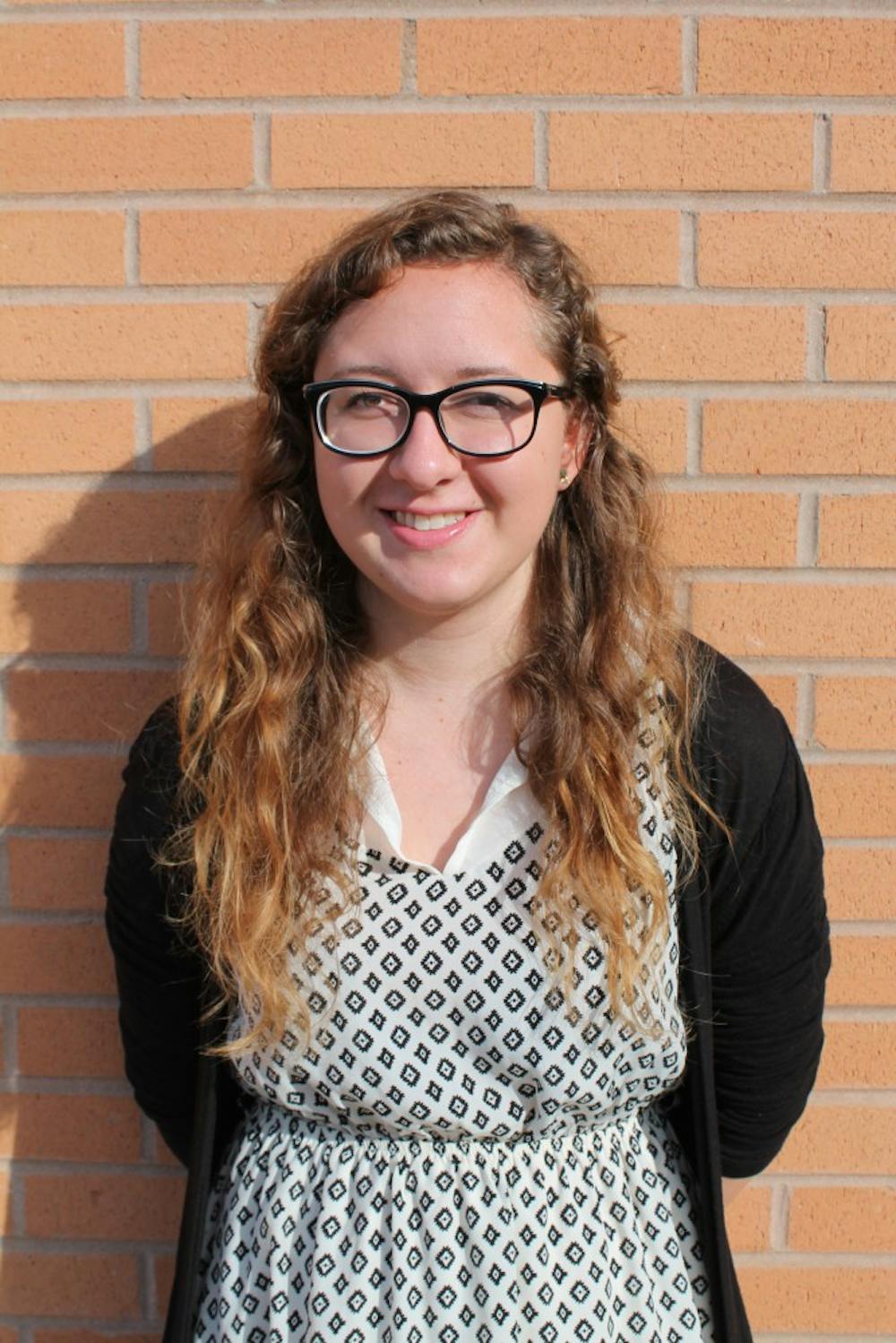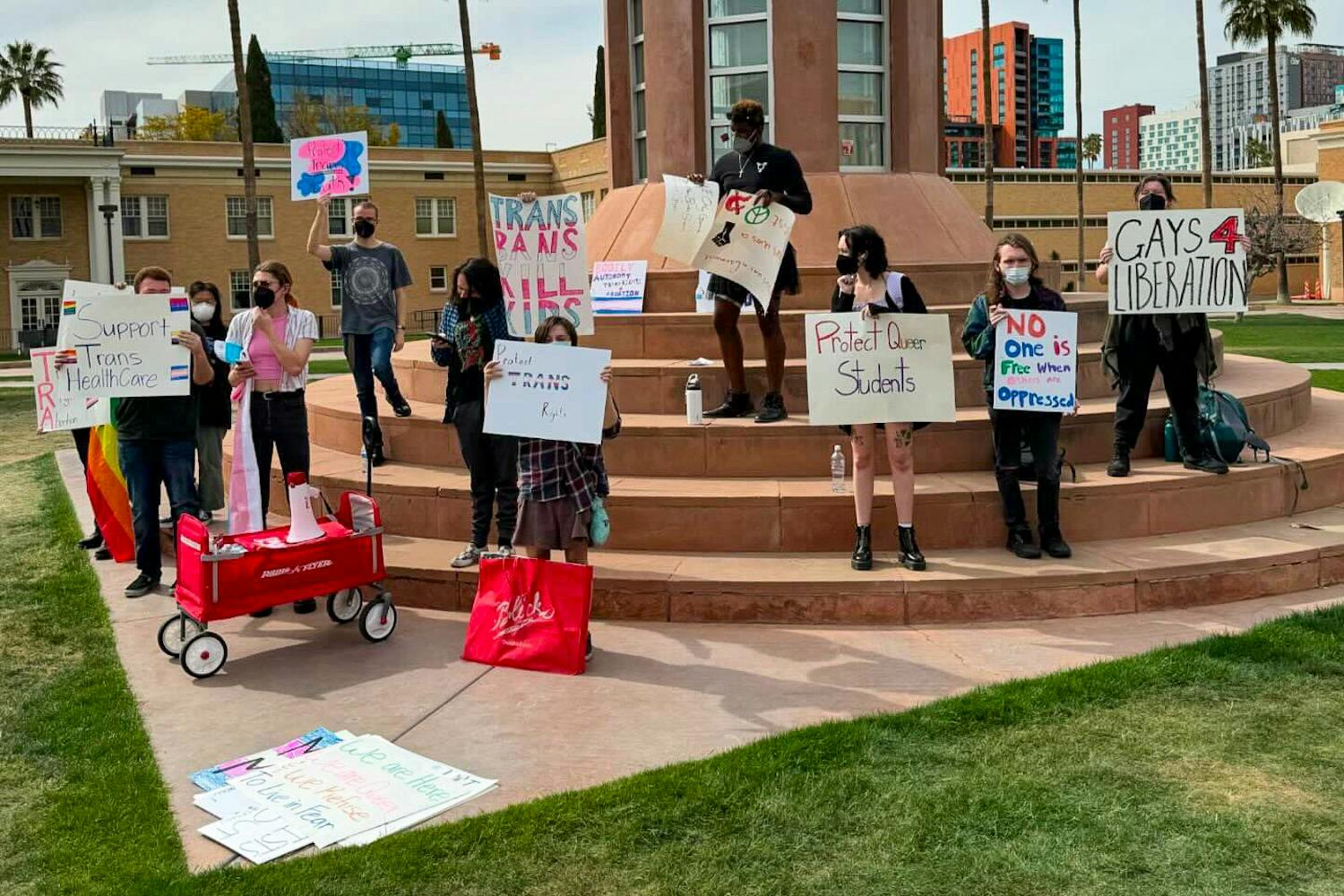At some point or another, we have all felt wronged and called for justice on our behalf. But there is a very tricky aspect of this type of situation, which has plagued humanity since the dawn of free-thinking: what is justice?
From Socrates to Thomas Hobbes to Martin Luther King Jr., scholars have attempted to unveil the truth behind justice for centuries.
Now, Arizona State University Barrett history major and junior, Brigitte Nicoletti, will tackle this timeless question and journey to five different countries this summer searching for a piece of the answer.
Nicoletti is getting a unique opportunity to conduct an international research project of her own design with funding from the Barrett Honors Intercontinental Study Award. She will be doing a study of comparative justice, looking at the juvenile justice systems of Japan, Norway, Malawi, Germany and Switzerland to discover best practices that can be applied to America’s juvenile justice system.
In her research, Nicoletti will interview all the different key-players in the juvenile justice systems of these five countries and investigate how each different juvenile justice system is set up. This area of law is one of the least standardized and she hopes to illuminate this overlooked piece of the puzzle.
Specifically, Nicoletti is interested in the success of a model of juvenile justice called restorative justice. Nicoletti explained that "In restorative justice, not just the victim and the perpetrator are benefited from the justice system, but the whole of society."
"It is important to not waste youth potential through alienating them from society," Nicoletti says. "Adolescent minds are not fully developed so children cannot always be held accountable for their actions. Kids may not actually know what is going on, as well as may be influenced by their social and economic conditions."
Besides this, Nicoletti says, "It is vital to intervene in juvenile delinquency before kids get caught up in cycles of violence."
Because young adults possess much more malleable minds, it is possible to influence change in a child much easier than in an adult.
The way Brigitte put it into perspective is by pointing out how "children pick up languages much easier than adults and the same goes for learning how to be good citizens of society." Referring to a study conducted by D.A.R.E., she recalled, “By the time you get to seventh or eighth grade, your trajectory is pretty much set.”
"It seems many nations don’t implement restorative justice because it is most expensive upfront," Nicoletti says. "But what they fail to see is that restorative justice has substantial long-term benefits by cultivating people who can be effective members of the workforce and positive members of society rather than housing people in jails all their lives after cycles of violence take hold."
Nicoletti first became acquainted by alternative forms of juvenile justice when she took part in Teen Court in her hometown of Flagstaff, where teens are judged in a court of their peers.
“The point of teen court was to assign constructive consequences instead of punishments,” Nicoletti says.
Once Nicoletti came to ASU, she excelled in her law classes and fostered a close working relationship with Anne Herbert as her teaching assistant.
"From the get-go I could tell that she was legit," Herbert says. "What this [opportunity] means for me, truly, is...its everything you hope for when you become a teacher - to see a genuine launch of somebody's dreams. I know this is the beginning of what the rest of her life is going to be. She's very passionate about becoming a legal scholar and working in criminal law mainly because she wants to make a difference in people's lives. It feels good to go to bed at night knowing you made even the smallest difference in someone's life. There's no amount of money or paycheck that's better than that. And to see someone that has that and this is the beginning for her, that's super exciting. That's it. That's just it."
"I have a very good memory of her as a Thespian in my class, discussing natural law and positive law," Herbert added.
Academic advisor and supervisor to Nicoletti , Sara Jarvie, had a similar experience when working with Nicoletti, saying, "Since working with Brigitte, and other advisors have talked about this to, but its like, 'Brigitte, can you do something for us?' and then five minutes later its back to you all done."
“She is so bright... I noticed that through this process it is a really hard process... She is a really great student, but she never seemed really all that stressed. She kept it really under control. She has this demeanor about her that she is very calm and like, 'Alright, I'll do that,' when I am like, 'When does she sleep?... How is she getting A's in all her other classes and still doing this huge project?' I think she was working for us, doing that, working for somebody else, working as a teaching assistant and taking five classes. It's pretty amazing how she can balance everything so well.”
Nicoletti introduced me to the concept of the "veil of ignorance," which poses the question of how an individual would form the justice system, if he or she didn’t know what particular tastes, abilities or position within the social order of society he or she would be born into.
Socrates recognized that a person cannot be fully happy when acting unjustly toward another person because one's character becomes tainted. This led him to define justice as the “soul acting with rational rule,” understanding that justice is to be shared by all.
The way Nicoletti sees it is, "The deeper solution is giving kids an education that they see as beneficial. A lot of the most heinous crimes come from ignorance and this is generally not the child’s fault, but rather a factor of not being exposed to and not being taught the right values."




